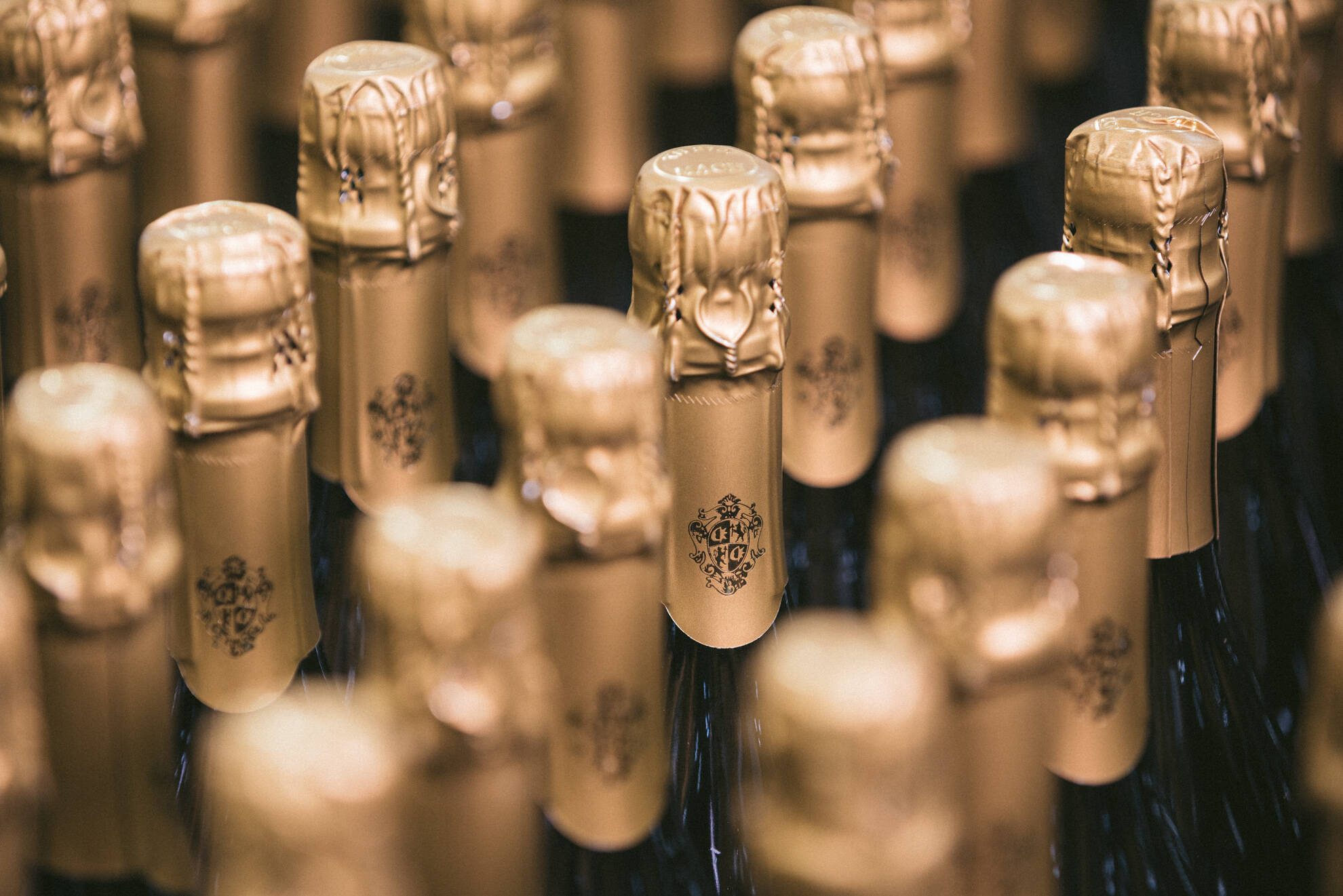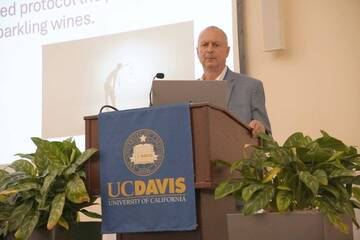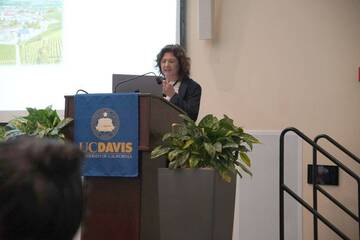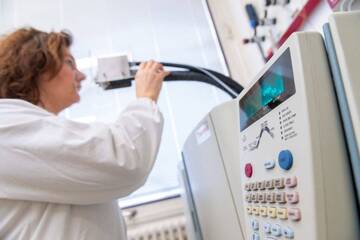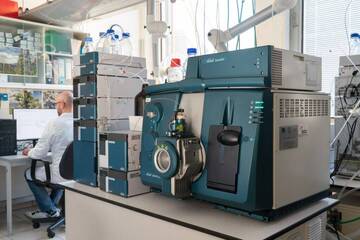A recent investigation carried out by Fondazione Edmund Mach has identified a new class of natural compounds in Trentodoc white and sparkling wines that can contribute to modulating the flavor of the wines themselves. The results of this study were presented in recent days in Davis, California, during the thirteenth edition of the world's most important conference "In Vino Analytica Scientia 2024," which every two years brings together the best scientists in the field from around the world, with the presence of over 150 delegates representing 15 different countries.
In white wines, there is a "kokumi" effect (from Japanese, koku – rich and mi – taste), meaning the wine contains substances that, through interaction with a calcium-sensitive receptor protein, can provide greater palatability by enhancing the perceived taste and the fullness and complexity of the flavor. How was this discovery made? A team of FEM researchers, in collaboration with colleagues from the Universities of Parma and Naples Federico II, managed to develop a method to analyze a previously unexplored class of compounds in wines, the "oligopeptides." Using a new technique developed in FEM's Metabolomics Unit, 15 samples of Trentodoc from 5 different vintages were explored, quantifying as many as 94 compounds. Further analyses, conducted in Parma and Naples, confirmed that these compounds can modify the sensory properties of white wines. Microbiological analyses conducted at FEM also discovered that the compounds formed originate from yeasts starting from the grapes and are completely different from those produced by fermenting other matrices, such as cider or beer. Analyses conducted on Trentodoc sparkling wine reserves confirmed that these same "kokumi" compounds are always present, in varying concentrations. The distinguished audience welcomed very favorably the new hypothesis presented by Prof. Fulvio Mattivi (Fondazione Mach), who was assigned the prestigious role of starting the conference with the opening plenary lecture. The discoveries presented by Prof. Mattivi pave the way for future research to understand and control the formation of these natural substances, capable of impacting the flavor of wine.
But Davis also discussed the issues of wine aging; specifically, Dr. Silvia Carlin (Metabolomics Unit, FEM) presented the results of research simulating the aging of sparkling wine under "forced" high-temperature conditions, comparing the outcomes with natural storage in a professional cellar. The research significantly contributes to improving the predictive potential of accelerated aging tests conducted on young sparkling wines, in order to select the wines most suitable for producing long-aged sparkling wines, the reserves. Indeed, even under the pressure of climate change, it becomes difficult to ensure that a batch of base sparkling wine has the characteristics to produce a reserve sparkling wine without developing undesirable notes over time, such as undesirable hydrocarbon or Marseille soap notes. The method developed at FEM is a useful tool in quality control, now available to reserve wine producers to select batches to process, discarding those that could produce defective wines.
Finally, always in relation to the possible improvement of cellar technologies, Dr. Adelaide Gallo presented the results of her PhD thesis developed at the experimental cellar of the Technology Transfer Center of the Edmund Mach Foundation, proposing new biotechnological solutions useful for protein stabilization of wines as an alternative to the use of bentonite, significantly simplifying cellar practices; the new technology takes advantage of the action of endopeptidase enzymes.
Photos: IVAS 2024 – prof. Andrew Waterhouse, and FEM database

